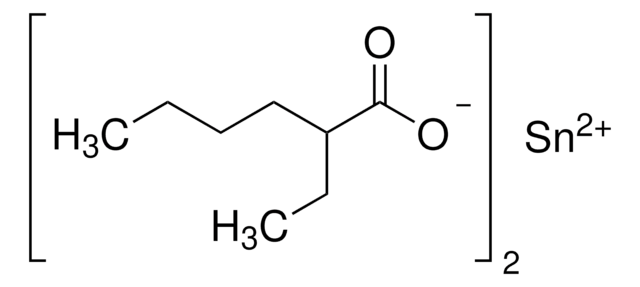189405
Polycaprolactone diol
average Mn ~530
Synonym(s):
Diethylene glycol-initiated polycaprolactone, Polycaprolactone oxydiethylene ester
About This Item
Recommended Products
form
paste
Quality Level
mol wt
average Mn ~530
transition temp
softening point 35 °C
density
1.073 g/mL at 25 °C
Looking for similar products? Visit Product Comparison Guide
Related Categories
Application
Signal Word
Warning
Hazard Statements
Precautionary Statements
Hazard Classifications
Eye Irrit. 2
Storage Class Code
11 - Combustible Solids
WGK
WGK 3
Personal Protective Equipment
Choose from one of the most recent versions:
Already Own This Product?
Find documentation for the products that you have recently purchased in the Document Library.
Articles
We will explore the technological advances that have contributed toward the progress of 3DP of tissue engineering scaffolds, current materials used to create 3DP scaffolds, and the challenges that remain.
In the past two decades, tissue engineering and regenerative medicine have become important interdisciplinary fields that span biology, chemistry, engineering, and medicine.
Innovations in polymer technology have had a significant impact on the advancement of novel drug delivery systems.
Our team of scientists has experience in all areas of research including Life Science, Material Science, Chemical Synthesis, Chromatography, Analytical and many others.
Contact Technical Service







